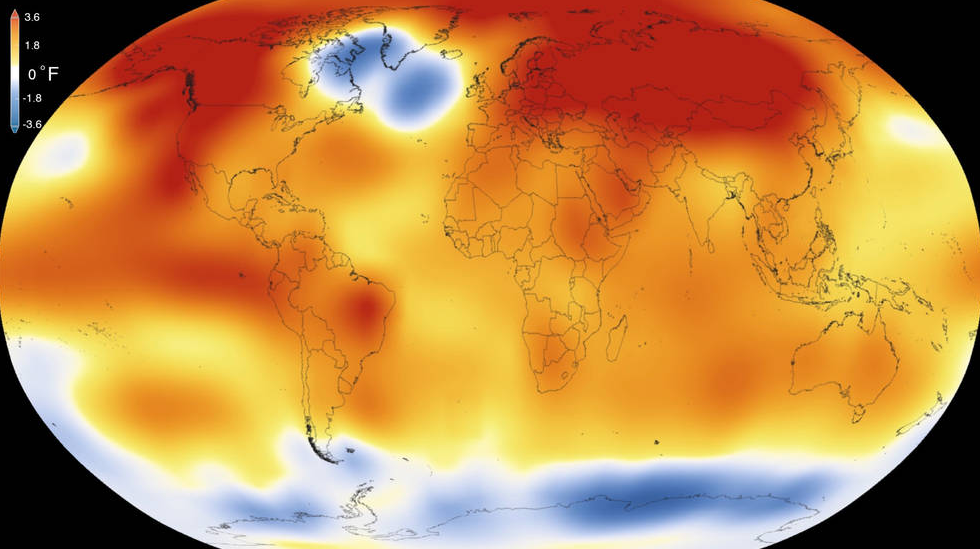-
Tips for becoming a good boxer - November 6, 2020
-
7 expert tips for making your hens night a memorable one - November 6, 2020
-
5 reasons to host your Christmas party on a cruise boat - November 6, 2020
-
What to do when you’re charged with a crime - November 6, 2020
-
Should you get one or multiple dogs? Here’s all you need to know - November 3, 2020
-
A Guide: How to Build Your Very Own Magic Mirror - February 14, 2019
-
Our Top Inspirational Baseball Stars - November 24, 2018
-
Five Tech Tools That Will Help You Turn Your Blog into a Business - November 24, 2018
-
How to Indulge on Vacation without Expanding Your Waist - November 9, 2018
-
5 Strategies for Businesses to Appeal to Today’s Increasingly Mobile-Crazed Customers - November 9, 2018
2015 was the hottest year ever recorded
“Most of the warming occurred in the past 35 years, with 15 of the 16 warmest years on record occurring since 2001”.
Advertisement
During 2015, the average temperature across global land and ocean surfaces was 1.62 degrees above the 20th century average, according to NOAA. NASA scientists and others said there’s a good chance that this year will pass 2015 as the hottest year on record, thanks to El Nino.
“2015 was remarkable even in the context of the ongoing El Nino”, said NASA’s Goddard Institute for Space Studies Director Gavin Schmidt.
NOAA says it release it monthly and annual reports to help organizations, government agencies, companies and people plan for climate. 10 of the 12 months in 2015 set the record for their hottest respective months. Earth’s temperature has grown 1.8 degrees Fahrenheit since the late 19th century.
One of the major contributors to 2015’s record-breaking warmth was the resurgence of the El Niño warming cycle, which boosted global temperatures for most of the year. Official temperature records stretch back to 1880. The report also said that the period of 2011-2015 has been the hottest five year period.
“It is happening because the dominant force – the increase in carbon dioxide, caused by deforestation and burning of fossil fuels – is increasing”, said Schmidt.
Weather dynamics often affect regional temperatures, so not every region on Earth experienced record average temperatures past year.
Earlier this month NOAA reported that last year ranked the second hottest in the U.S.in 136 years.
He also notes a “head-shaking” statistic: the last time the planet recorded a record average low temperature was 1916.
This means that the planet is already halfway toward the internationally-accepted redline of a 3.6 degrees Fahrenheit rise in average global surface temperatures above the pre-industrial levels.
Advertisement
The time-lapse video uses orange colours to represent temperatures warmer than the baseline average between 1951-1980, and blues to represent temperatures cooler than the baseline. Incidentally, this is the 7th consecutive month that global temperature record has been broken on a monthly basis.




























